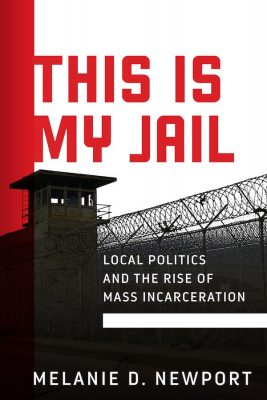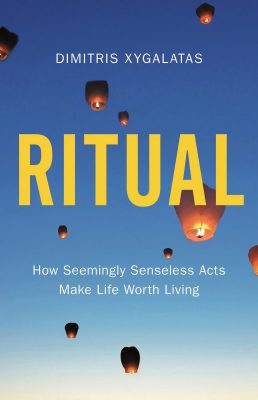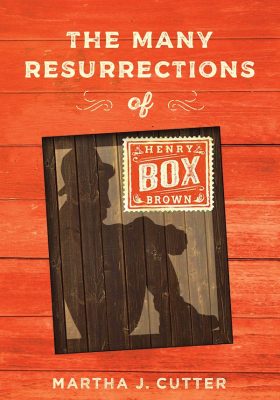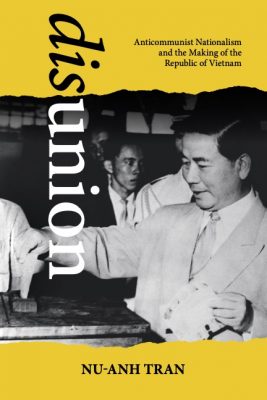UCHI is honored to announce the winners of the Sharon Harris Book Award for 2023:

Melanie D. Newport
Assistant Professor, History, UConn
for her book
This is My Jail: Local Politics and the Rise of Mass Incarceration (Penn Press, 2022)
The Sharon Harris Book Award Committee notes , “An incisive and timely political history, Melanie Newport’s This is My Jail: Local Politics and the Rise of Mass Incarceration (University of Pennsylvania Press, 2023) features previously under-engaged stories of resistance by jailed people and their allies to challenge conventional accounts of the inevitable or recent emergence of mass incarceration in the U.S. Long predating the rise of conservatism and neo-conservatism, Newport persuasively shows how, in experimental and contingent ways, local governments relied on jails to manage the freedom of people of color from the founding of the nation and its cities. An indispensable player in ongoing negotiations over what local government could and should do, the functions of jails evolved with their role as urban regulatory institutions. As Black and Latinx urban residents resisted them as criminalizing the poor and perpetrating purposeful racialization, the response, through the twentieth century, was jail expansion. Drawing from these lessons, Newport states unequivocally that jails are barriers to collective freedom that cannot deliver a solution to violence in Chicago or beyond. We are delighted that this important, must-read study was authored by a UConn colleague!”
, “An incisive and timely political history, Melanie Newport’s This is My Jail: Local Politics and the Rise of Mass Incarceration (University of Pennsylvania Press, 2023) features previously under-engaged stories of resistance by jailed people and their allies to challenge conventional accounts of the inevitable or recent emergence of mass incarceration in the U.S. Long predating the rise of conservatism and neo-conservatism, Newport persuasively shows how, in experimental and contingent ways, local governments relied on jails to manage the freedom of people of color from the founding of the nation and its cities. An indispensable player in ongoing negotiations over what local government could and should do, the functions of jails evolved with their role as urban regulatory institutions. As Black and Latinx urban residents resisted them as criminalizing the poor and perpetrating purposeful racialization, the response, through the twentieth century, was jail expansion. Drawing from these lessons, Newport states unequivocally that jails are barriers to collective freedom that cannot deliver a solution to violence in Chicago or beyond. We are delighted that this important, must-read study was authored by a UConn colleague!”

Dimitris Xygalatas
Associate Professor, Anthropology, UConn
for his book
Ritual: How Seemingly Pointless Acts Make Life Worth Living (Little, Brown Spark, 2022)
The Sharon Harris Book Award Committee notes , “Dimitris Xygalatas’ Ritual: How Seemingly Pointless Acts Make Life Worth Living, is an exceptional combination of meticulous research and vivid prose, a first-rate scholarly book which has garnered attention well beyond the academy. Xygalatas combines scientific methodology with a deeply humanistic perspective to argue that rituals which seem initially without purpose constitute deep wells of comfort, connection, and meaning in societies across the world. Ritual, a book which enlightens and entertains, is the focus of multiple special issues in academic journals and has been covered by NPR, the BBC, Nature, and others.”
, “Dimitris Xygalatas’ Ritual: How Seemingly Pointless Acts Make Life Worth Living, is an exceptional combination of meticulous research and vivid prose, a first-rate scholarly book which has garnered attention well beyond the academy. Xygalatas combines scientific methodology with a deeply humanistic perspective to argue that rituals which seem initially without purpose constitute deep wells of comfort, connection, and meaning in societies across the world. Ritual, a book which enlightens and entertains, is the focus of multiple special issues in academic journals and has been covered by NPR, the BBC, Nature, and others.”
Honorable mentions:

Martha Cutter
Professor, English, American Studies, & Africana Studies, UConn
for her book
The Many Resurrections of Henry Box Brown (Penn Press, 2022)
 The Sharon Harris Award Committee notes, “This book both excavates the radical effects of the performances of Henry Box Brown, both in the nineteenth-century world in which he lived, and in the imaginations and artistry of Black innovators in the twenty-first century. Henry Box Brown self-emancipated in 1849 by having himself mailed in a large postal crate to free soil in Philadelphia. He then created a career in which he built on his own remarkable story as an abolitionist lecturer, magician, actor, singer, and hypnotist. Cutter scrutinized a far-flung archive that included materials in England, the US, and Canada to reveal aspects of Brown’s life and work that had been previously unknown. This book manages the difficult feat of both creating an impeccably-researched engagement with this remarkable man and tracing his legacies in compelling close readings of current literature and artistry. This truly interdisciplinary work offers an important new perspective in how we engage the work of nineteenth-century African American artistry, but how that artistry continues to influence our present moment.”
The Sharon Harris Award Committee notes, “This book both excavates the radical effects of the performances of Henry Box Brown, both in the nineteenth-century world in which he lived, and in the imaginations and artistry of Black innovators in the twenty-first century. Henry Box Brown self-emancipated in 1849 by having himself mailed in a large postal crate to free soil in Philadelphia. He then created a career in which he built on his own remarkable story as an abolitionist lecturer, magician, actor, singer, and hypnotist. Cutter scrutinized a far-flung archive that included materials in England, the US, and Canada to reveal aspects of Brown’s life and work that had been previously unknown. This book manages the difficult feat of both creating an impeccably-researched engagement with this remarkable man and tracing his legacies in compelling close readings of current literature and artistry. This truly interdisciplinary work offers an important new perspective in how we engage the work of nineteenth-century African American artistry, but how that artistry continues to influence our present moment.”

Nu-Anh Tran
Assistant Professor, History & Asian and Asian American Studies, UConn
for her book
Disunion: Anticommunist Nationalism and the Making of the Republic of Vietnam (University of Hawai‘i Press, 2022)
 The Sharon Harris Award Committee notes, “Nu-Anh Tran’s book Disunion: Anticommunist Nationalism and the Making of the Republic of Vietnam, offers a fresh perspective on the Vietnam War and its legacies by engaging and analyzing a largely neglected archive of Vietnamese-language sources. In doing so, Tran makes a persuasive case that overturns the conventional wisdom that the U.S’s hand was forced in propping up up the dictatorial Ngô Đình Diệmin as the only feasible option in the fight against communism. Tran’s research reveals that the U.S. could have chosen any number of Vietnamese allies as it sought to stop the expansion of communism. Rather, the US chose to invest in the most authoritarian option because of colonialist skepticism around the Vietnamese capacity for democracy. This remarkable book adds complexity and nuance to the ever-present American justification of violent intervention as a means of ‘spreading democracy.’”
The Sharon Harris Award Committee notes, “Nu-Anh Tran’s book Disunion: Anticommunist Nationalism and the Making of the Republic of Vietnam, offers a fresh perspective on the Vietnam War and its legacies by engaging and analyzing a largely neglected archive of Vietnamese-language sources. In doing so, Tran makes a persuasive case that overturns the conventional wisdom that the U.S’s hand was forced in propping up up the dictatorial Ngô Đình Diệmin as the only feasible option in the fight against communism. Tran’s research reveals that the U.S. could have chosen any number of Vietnamese allies as it sought to stop the expansion of communism. Rather, the US chose to invest in the most authoritarian option because of colonialist skepticism around the Vietnamese capacity for democracy. This remarkable book adds complexity and nuance to the ever-present American justification of violent intervention as a means of ‘spreading democracy.’”
We thank the award committee for their service. The Sharon Harris Book Award recognizes scholarly depth and intellectual acuity and highlights the importance of humanities scholarship. The 2023 award was open to UConn tenured, tenure-track, emeritus, or in-residence faculty who published a monograph between January 1, 2020 and December 31, 2022.

